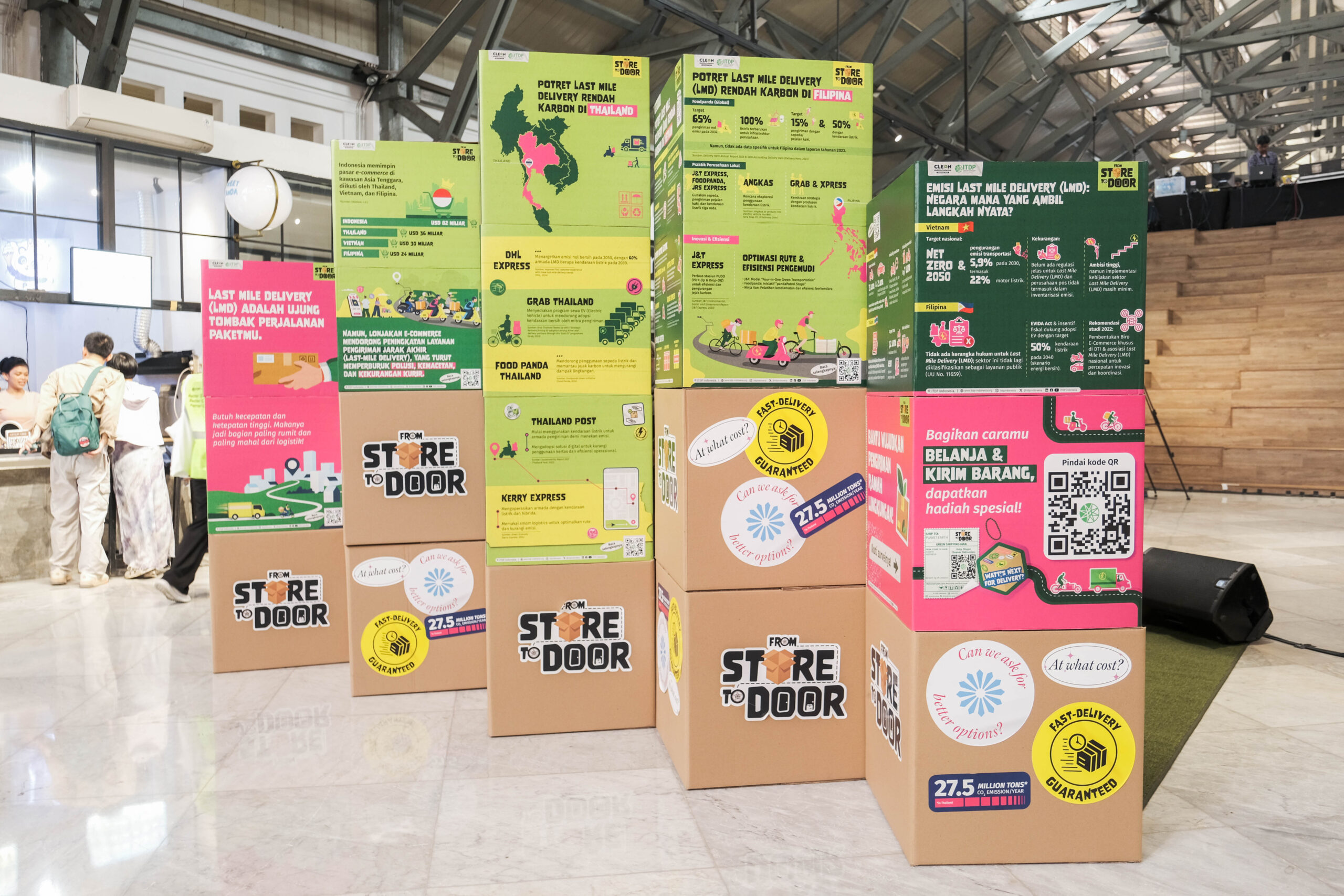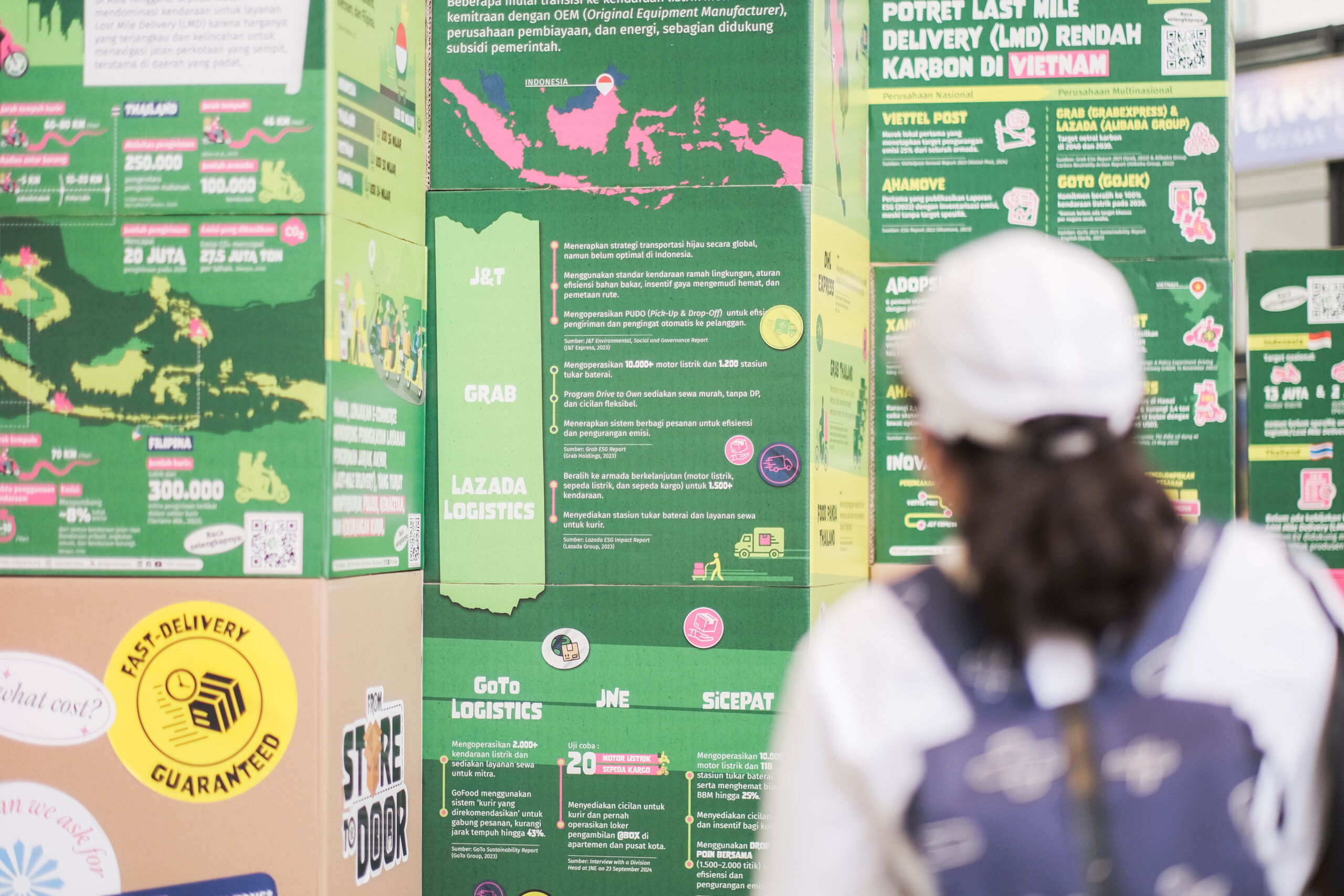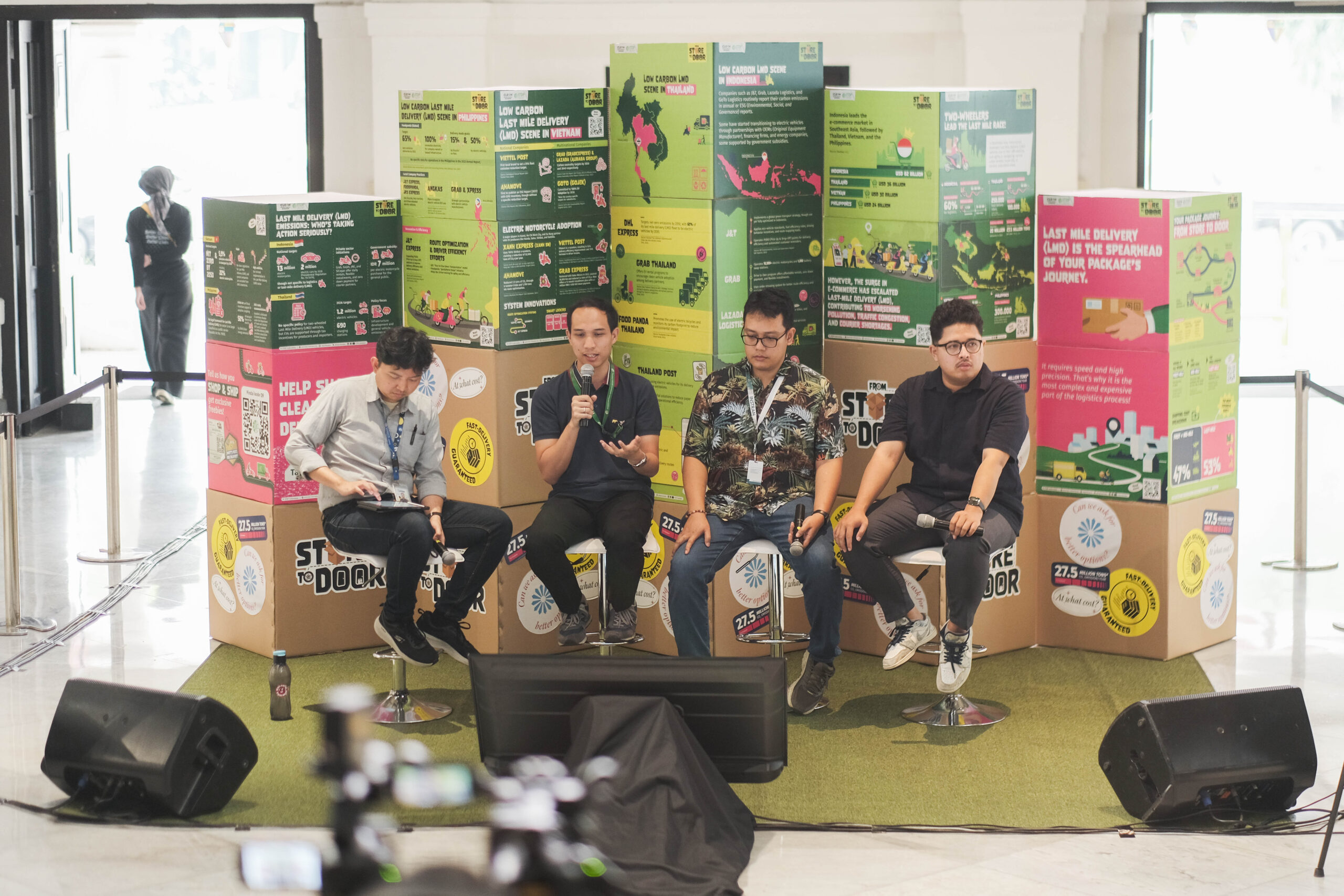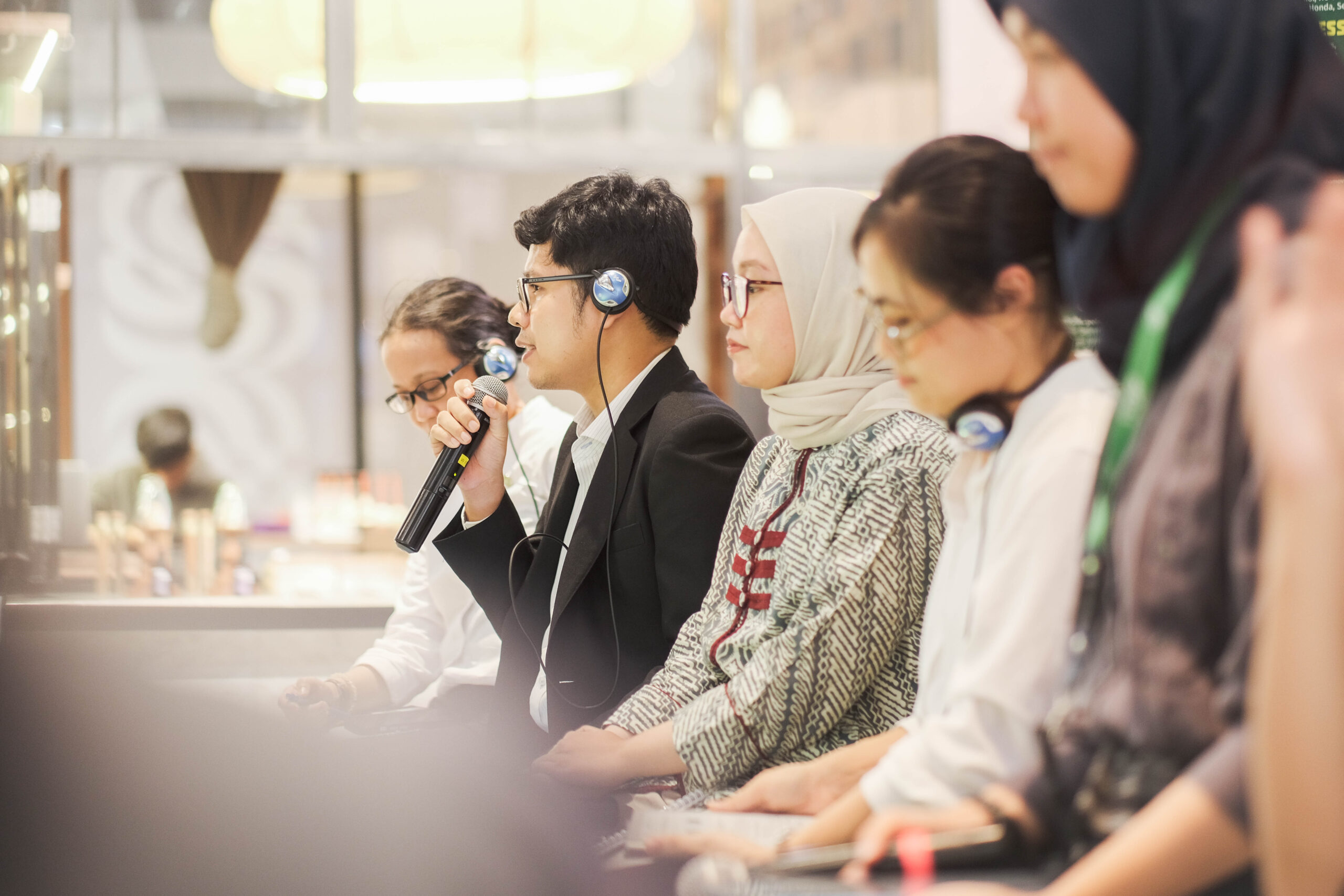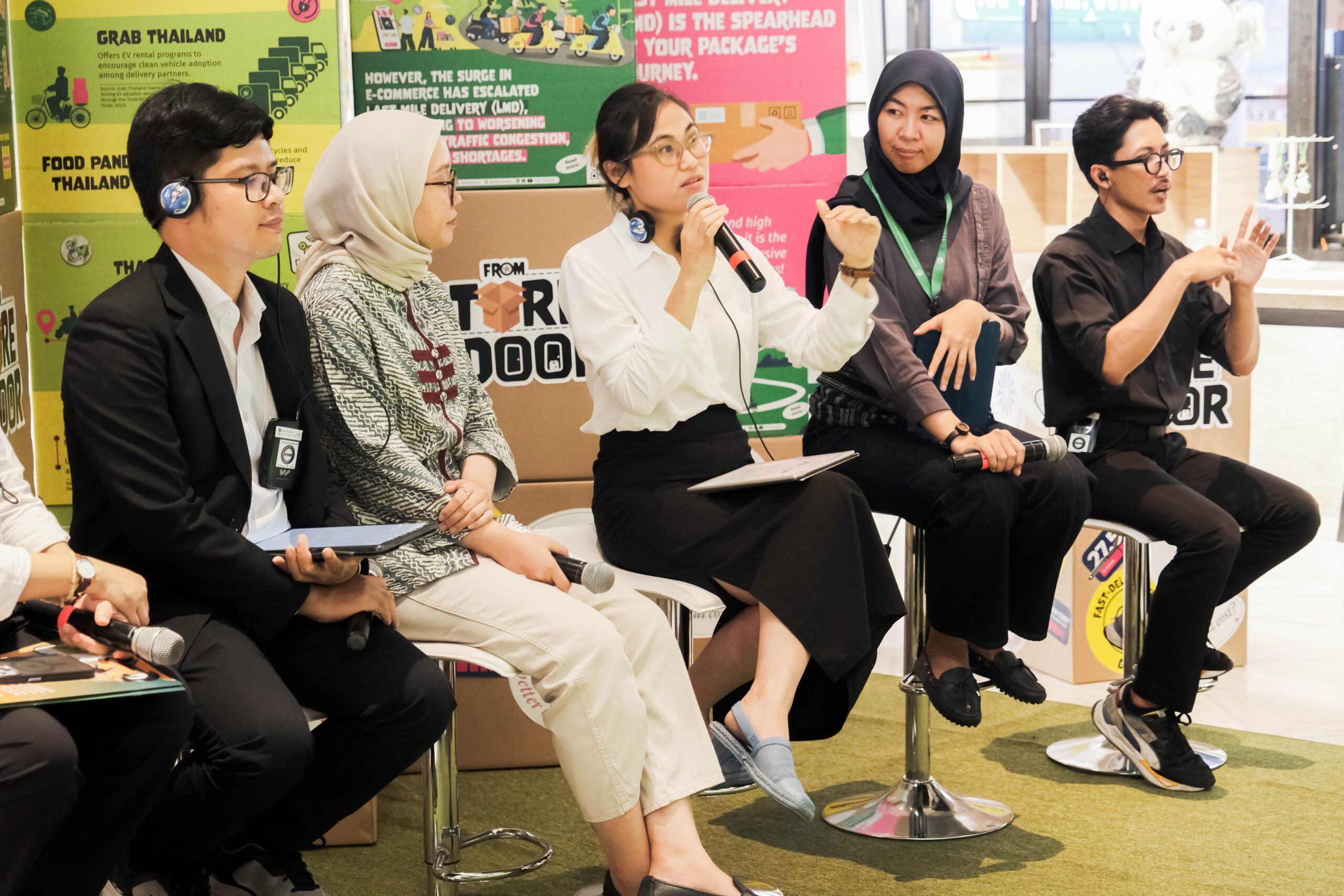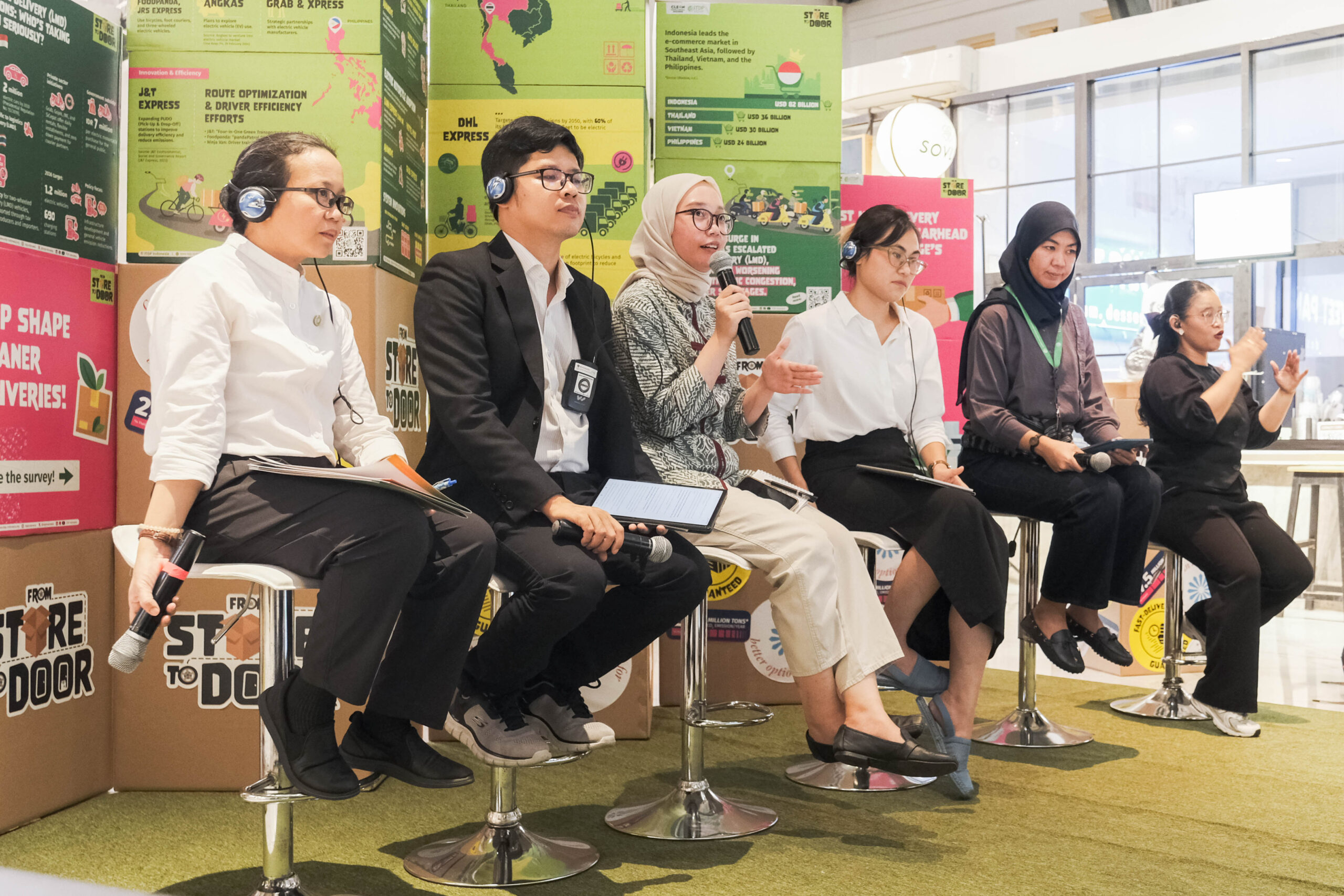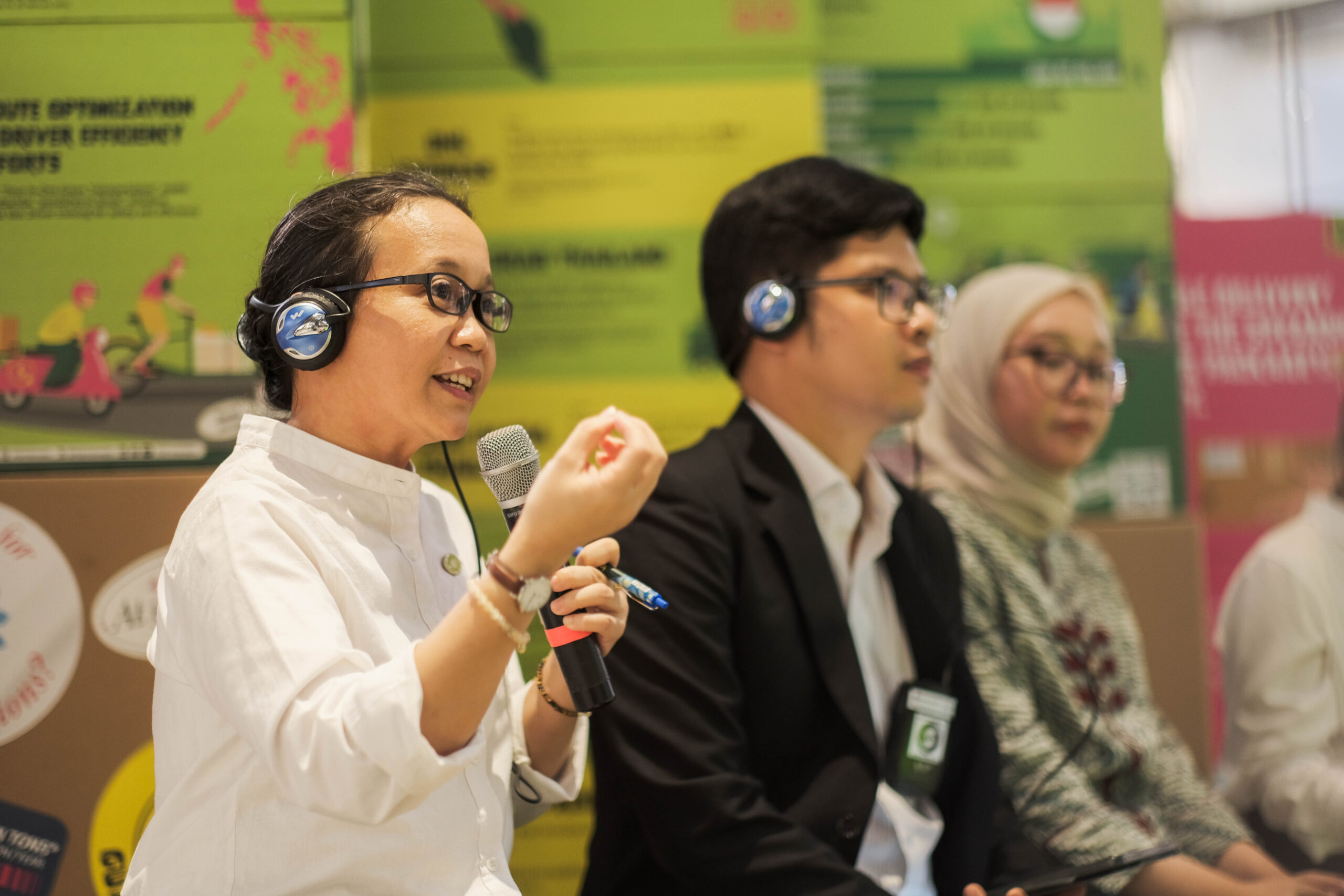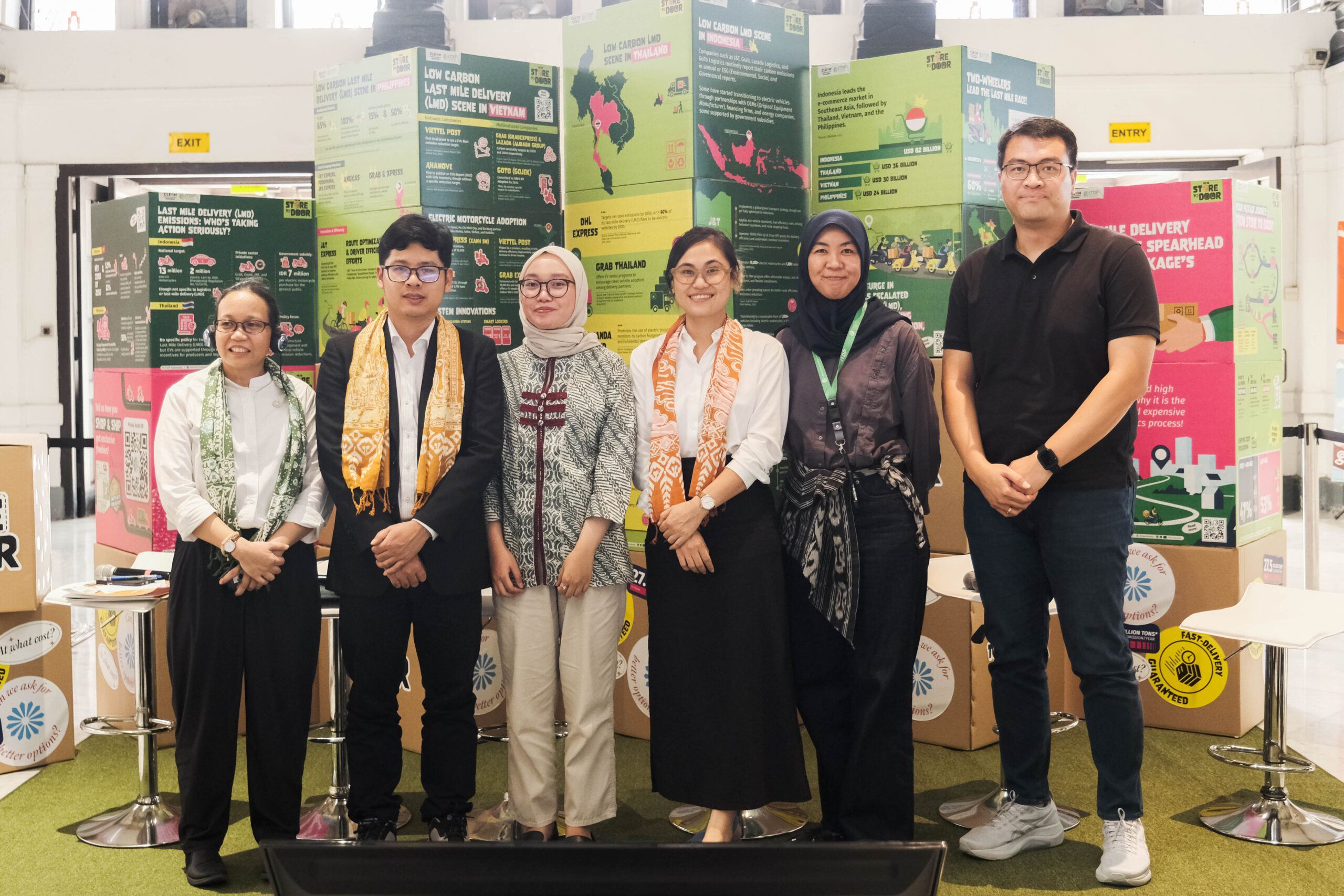August 14, 2025
From Store to Door: ITDP Indonesia and CMC SEA Highlight Inclusive, Low-Emission Urban Logistics in Southeast Asia
The issue of urban logistics, particularly last-mile delivery (LMD), is increasingly urgent to discuss given its significant impact on the environment and quality of life in Southeast Asia’s major cities. Responding to this challenge, ITDP Indonesia, along with Clean Mobility Collective Southeast Asia (CMC SEA), organized a public discussion titled “Urban Logistics in Southeast Asia: Country Perspective on Greening the Last Mile” on Sunday, August 10, 2025, at Pos Bloc Jakarta.
This event was part of the dissemination series of the study “Background Study on Two-Wheelers Last-Mile Delivery Services towards Inclusive, Low-Carbon Transport Transformation in Indonesia, Thailand, Vietnam, and the Philippines.” Conducted by researchers from four Southeast Asian countries, the comprehensive study underscores the complexity and urgency of transitioning towards a more sustainable last-mile delivery system.
During the event, visitors could enjoy an interactive visual installation showcasing the journey of a package and key findings from the LMD study in Indonesia, Thailand, Vietnam, and the Philippines. Additionally, a casual chat session, AyoNgobrolinKota (ANGKOT), organized by the Jakarta Transportation Discussion Forum (FDTJ), explored various challenges to achieving a sustainable last-mile delivery system in Indonesia.
In the AyoNgobrolinKota (ANGKOT) session, Mizandaru Wicaksono, Urban Mobility Manager ITDP Indonesia, highlighted how e-commerce growth in Indonesia is projected to increase 2.5 times by 2030, leading to a growth in urban LMD activities. This condition risks rising traffic congestion, air pollution, and carbon emissions. “The average delivery radius from one hub in Jakarta is only about 5 km, but couriers can travel up to 60-80 km per day,” Mizan revealed.
This point was also emphasized during the “Urban Logistics in Southeast Asia: Country Perspective on Greening the Last Mile” public discussion session, which underscored the critical role of urban logistics in supporting economic growth, particularly in Southeast Asian cities undergoing rapid urbanization. LMD, as the final stage of delivery, plays a strategic role. However, this segment is also the most expensive and contributes the most emissions, with 53% of total delivery costs (Moradi et al., 2023).
The high dependence on motorcycles in the region—where 60% of logistics activities in Indonesia and 70% of LMD fleets in Vietnam use this mode—triggers various environmental problems such as air pollution, traffic congestion, and public health risks. Projections show that CO₂ emissions from LMD in Vietnam could reach over 1.2 million tons per day by 2025.
Several logistics companies have begun transitioning to electric vehicles and low-emission strategies. However, adoption remains uneven due to limited policy support, weak regulations, and financial challenges, especially for small and local businesses.
Dr. Lai Nguyen Huy, Research Specialist Asian Institute of Technology, shared that the LMD sector still faces several structural challenges, ranging from limited government-level planning to a lack of cross-stakeholder collaboration. “Our study shows that two- and three-wheeler LMD is still absent from government transport plans in many developing countries, with limited emissions data available,” he explained.
Nguyen Thi Phuong Nhung, Citizen Science Program Coordinator from Live & Learn Vietnam, raised the issue of fleet ownership influencing this transition. ” If a government sets a target for 100% electric vehicles, will couriers be able to afford purchasing EVs to meet that target? Or should this responsibility fall on companies to provide incentives, or on governments to step in?” Nhung questioned.
Responding to this, Anggie Hapsari, Program Development Associate ITDP Indonesia, shared examples of ongoing initiatives. “Some Indonesian delivery companies are already going greener, with the government mandating a shift to sustainable models within 1.5 years. In the Philippines, the government takes a different approach, requiring businesses to report their ESG performance—something Indonesia could also consider.”
On the other hand, Maria Golda P. Hilario, Director for Urban Development Institute for Climate and Sustainable Cities (ICSC) Philippines, highlighted the importance of translating regional guidelines into concrete action. “With insights from four countries, we are not starting from zero in building regional recommendations,” she stated. She also emphasized that the success of efforts towards sustainable urban logistics requires the involvement of all stakeholders.
ITDP Indonesia and the CMC SEA network affirm their commitment to continue encouraging cross-sector collaboration and data-driven approaches to create more environmentally friendly, healthy, and equitable for all in Southeast Asia.
Read the full study and watch the rerun of “Urban Logistics in Southeast Asia: Country Perspective on Greening the Last Mile” here.

